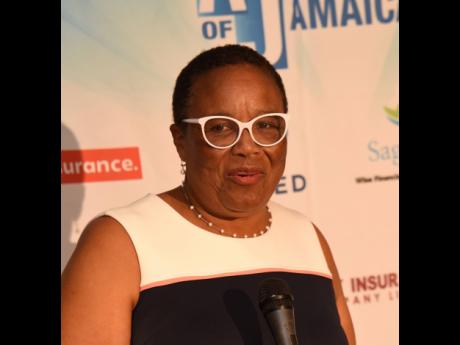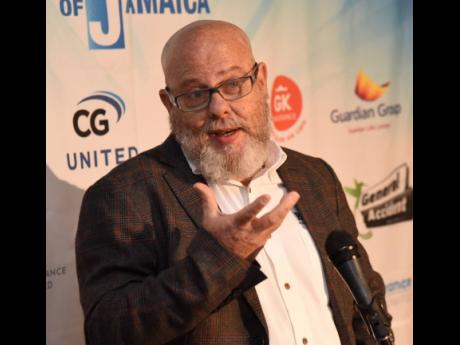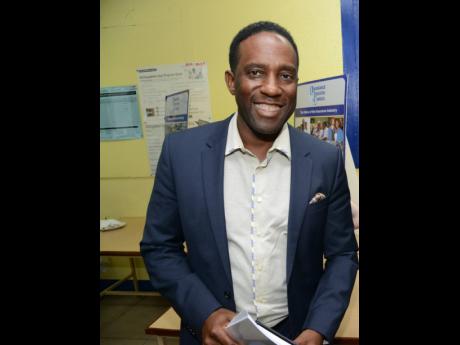In grim 2023 outlook, general insurers mull rationing coverage
The Jamaican general insurance industry is in for tough times in 2023, industry members say, citing the double whammy of having to increase rates to guarantee a better rate of return to reinsurance investors and getting reduced reinsurance cover,...
The Jamaican general insurance industry is in for tough times in 2023, industry members say, citing the double whammy of having to increase rates to guarantee a better rate of return to reinsurance investors and getting reduced reinsurance cover, or capacity.
What that means, says Sharon Donaldson, president of the Insurance Association of Jamaica, IAJ, is that insurance companies will effectively have to ration the coverage offered to their clients or be very discerning in the types of risks they take on. She likened the present predicament to that of the biblical story of the feeding of the five thousand, saying insurance companies with diminished capacity have a growing market to service.
“The industry is in that exact position right now and unfortunately, there is no Jesus to perform any miracle,” Donaldson said, regarding the industry’s outlook for the year ahead.
She added that several of the one dozen general insurers in Jamaica face the prospect of operating without the kind of catastrophe cover that will allow their business to deliver compensation in the event of a major disaster, but declined to identify any of the vulnerable firms.
“I knew it was going to be bad, but I just did not expect [it to be as] bad it is proving to be,” the IAJ president said of the reinsurance fallout.
In early December, general insurance companies sounded the alarm that international reinsurers were demanding higher rates, absent which they would back out of the Jamaican market.
“The conditions are as tough as was conveyed, and we’re still battling with the reinsurers. It’s going to be tough on our customers and on us as well,” said Peter Levy, managing director of British Caribbean Insurance Company Limited, the largest general insurance company.
Advantage General CEO Mark Thompson says the industry is at an inflection point, after the warnings emanating from the reinsurance community earlier in 2022 sounded at first like musings, but had moved from “chatter to hardened positions” by the end of the year.
“There is worldwide pressure now, which very much supports the idea that this is no longer a matter of just chat. Things are getting firmer, and in some quarters they say it is extremely hard,” Thompson said in his assessment.
He added that while there were reports of increased rates in the order of 20 per cent at the end of November, four weeks later, reinsurers upped the ante and began asking for over 40 per cent more.
“In many cases we would like to take an easy and comfortable path, but I don’t think we can afford to, given what is happening,” Thompson said.
The pressure on the companies is already showing up in industry data. In the most current industry data from the Financial Services Commission, FSC, the regulator cited a 32 per cent increase in reinsurance charges as the primary cause of the decline in net premium earned, which was down 10 per cent to $9.6 billion at half-year ending June 2022.
Reinsurance ceded is the amount paid to international financiers to cover the risks taken on by local insurance companies when they provide insurance cover for their clients. The reinsurance cover determines how much business a company can do as they write insurance policies, which the industry refers to as its capacity.
Thompson said capacity is on the decline at a time when more and more properties are coming to the market, thereby adding to the aggregate demand for insurance.
“There is more and more commercial and residential construction coming into play that will need insurance, but there is less capacity available to service it,” he said.
However, there is an active search for solutions, he added, especially since there are many instances where clients have to take out insurance policies, for example, when they are carrying mortgages or need to protect large investments. But they may also choose to drop other coverage that may not be seen as critical, the Advantage General CEO noted
“It may come down to cases where a client will say, ‘I’ll no longer buy cover for my garden’; or in the case of, say, a gated complex, they may decide not to insure the guardhouse, and so on,” Thompson said.
He sees the present conundrum as part of a cycle. The investors who normally support reinsurers are opting to invest in Treasury bills that offer increased rates of return amid rising interest rates; or are otherwise being squeezed due to softening bond prices; or they face unfavourable foreign exchange rates, he said.
He added that due to climate change issues, investors are imbued with a certain amount of risk aversion, and that various catastrophic events seemed to have reinforced their fears.
“There are all these factors that are coming into play at the same time, effectively creating the perfect storm, if you will. All the things that can cause us problems are happening at the same time,” Thompson said.
As to the possibility that any insurance provider might seek advantage by offering cheap rates to gain market share, Thompson said the reinsurance dynamic would negate against such a move, as in order to sell more to the market, an insurance company going after market share must have adequate cover from reinsurers.
“What the reinsurers are doing right now is that they are not adding capacity, and in many cases they are reducing capacity. That puts us in a more defensive stance [rather] than one which is aggressive,” said Thompson.
Levy similarly warned: “If somebody has an expansionist appetite to grow their business by discounting and so on, it will be a very short amount of time before they’ve used up capacity at cheaper rates, and then they’ll be out of the picture.”
“We’re all in the same boat. It is taking in water and we all have to bail. Self-interest will drive players to make the right decision,” he added.



